
This post may contain affiliate links. Click here to find out more about this.
Table of Contents
An SEO Strategy is the process that you follow when you want to get more organic traffic. One of the foremost ways for a brand, product, or business to establish its global digital footprint is International Search Engine Optimization (SEO). Here are 5 Ways to Profitably Expand SEO Strategy Abroad.
Currently, the international market for SEO is nearly untapped.
It’s the primary explanation for why most traffic has expanded a few years today and just why it is growing.
Establish an International SEO Strategy to Expand Business
1. Decide if ready for the task.
International SEO is not an easy feat that requires effort and time, and energy to get going.
The procedure of starting an SEO strategy abroad requires maintaining multiple sites in various languages.
From updating content to editing, mistakes are robust and get magnified tenfold.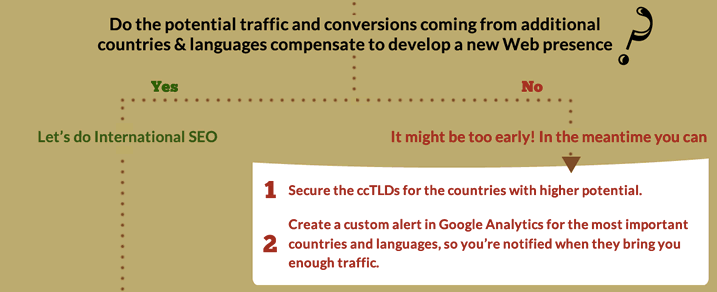
If you don’t believe that profits will undoubtedly be substantial or worthwhile, there is absolutely no real point in spinning your wheels.
If you are still centered on your present SEO strategy is likely to country, it could be maximized a lot more. Focus efforts on that, then.
The target and the end of this is profit.
If you believe profitability won’t happen out of this move, no point there’s.
But also, for some, the gains could be substantial, and based on experience, we’ve seen incredible growth as a result.

See How My Agency Can Drive Massive Amounts of Traffic to Your Website
SEO – unlock massive amounts of SEO traffic. See real results.
Content Marketing – our team creates epic content that will get shared, get links, and attract traffic.
Paid Media – effective paid strategies with clear ROI.
Next thing, let’s analyze existing international traffic to gauge whether this can be a good step for the business or merely a waste of time.
Using analytics software, it is possible to understand if your time and effort are allocated to overseas SEO strategy or your present one best.
2. Analyze existing international organic reach.
For instance, however, you might be located in Canada or America; there exists a high chance your content has been clicked on or observed in different markets.
Whether that’s due to a backlink on a favorite blog with international readers or just from an organic search.
Some began to expand their SEO presence to new markets abroad by analyzing their current traffic.
This enables one to first capitalize on the traffic you are already getting.
Meaning the amount of money you put towards this effort will undoubtedly receive a commission back as you know for an undeniable fact that the traffic already exists.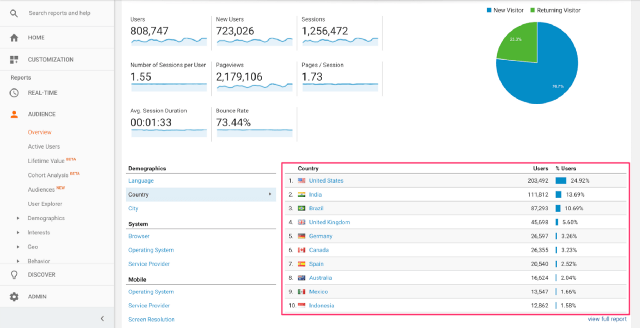
Notice the way how the USA is the number 1 traffic source here.
But check out the other ones. Now America doesn’t even constitute 50% of the site traffic.
India, Brazil, the UK, Canada, and much more. Several national countries speak different languages, too.
Start Analytics and demand Overview tab under Audience.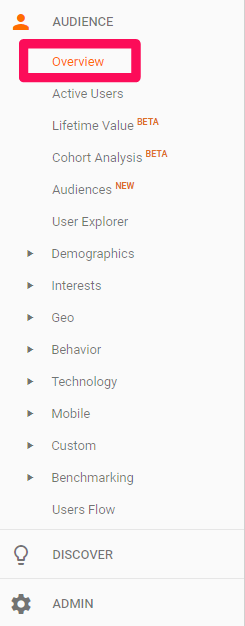
From here, go through the “Country” tab beneath the “Demographics” portion of your dashboard: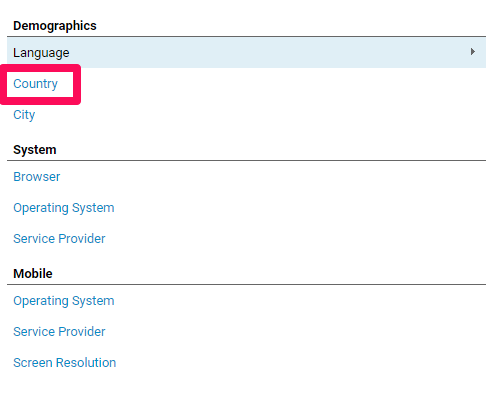
Now, on the right-hand side, you need to visit a new table that appears challenging countries where your traffic is via:
If you click “view full report” beneath the table, you will get more data on the very best places your existing international traffic is via.
For instance, have a look at the map to see where the densest traffic is via: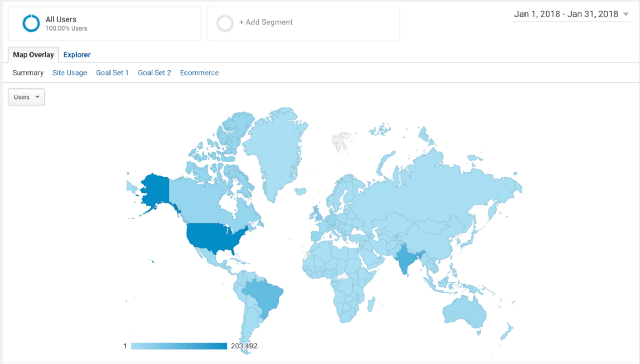
To get a lot more specific, it is possible to narrow down traffic to particular cities:
In the brand new table below the map, you may get a feel for what countries like your articles probably the most.
You see metrics like sessions, new sessions, new users, bounce rate, session duration, and conversions with this table.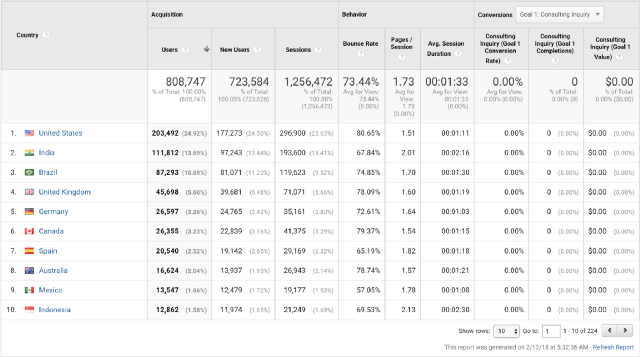
This graph and chart will help you prioritize your time and efforts initial stages of one’s international SEO strategy.
Prioritize the traffic that’s already performing well to improve the performance and drive sales.
Another step before taking any action together with your SEO would be to create link tracking using Bitly.

It is a useful tool that allows one to track links more in-depth than possible with a generic link shared on social media marketing.
Since social media marketing is diverse and could become more varied than your present site traffic, it’s key to track where users have found your articles and their countries.
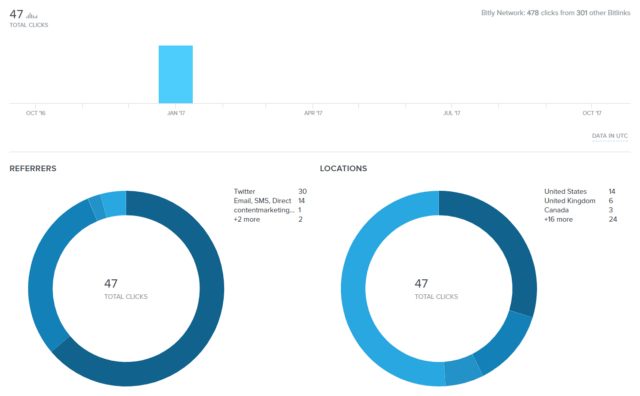
On the confirmed link’s dashboard, you can view specific referral sites driving the clicks, enabling you to further optimize for international markets.
The locations tab shows you exactly where your traffic is coming from, too.
And you will perform these same actions. Head to the analytics section of your Facebook page and navigate to the “Demographics” section under “People.”
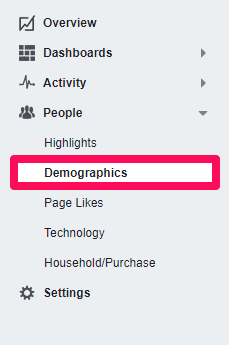
Scroll down the dashboard page, and you ought to see demographic data on countries immediately, cities, and, most importantly, languages.
The language will probably be key for this next section.

Once you’ve compiled a listing of the top traffic sources from different countries, cities, and languages, it’s the right time and energy to get your SEO strategy off to the proper start.
3. Translate blog content.
If they can’t read your content because they don’t know English, you have a major problem. Any traffic generated will bounce ASAP.
Why?
Because Google’s on-site translator isn’t great, it doesn’t understand contextual cues and dialect that is complicated in the marketing or SaaS world.
It’s best used for basic, small words or sentences that you don’t know, then a whole marketing post of 2 instead,500 words talking about canonicalization.
To scale this profitably, it’s easiest to start with a translator plugin on your site. But remember, this isn’t going to be perfect.
If you begin to gain traction, you can always hire a professional translator on sites like Upwork to get the job done at a fair price for excellent work.

Plugins aren’t great because they can’t pick up on most social cues. But a few good ones to start with are qTranslate or Transposh.

Only translate a few at a time, don’t select all 92 languages. You risk slowing the procedure or freezing your website otherwise.
Remember, the steps you did before this section should guide your translation.
Just focus on the top-performing countries and their respective languages right now to get the best bang for your buck.
Once you get these into place, you can begin to capitalize on new markets.
But to expand with the highest ROI, focus on current traffic sources.
Let’s take, for instance, some SEO’s were able to increase organic traffic by 47% from just this one simple step.
That is one change in opening blog content to new eyes that gave it insane traffic jumps.
They were able to start driving search queries that they couldn’t even understand.
Soon, their Analytics data was crowded with these search terms: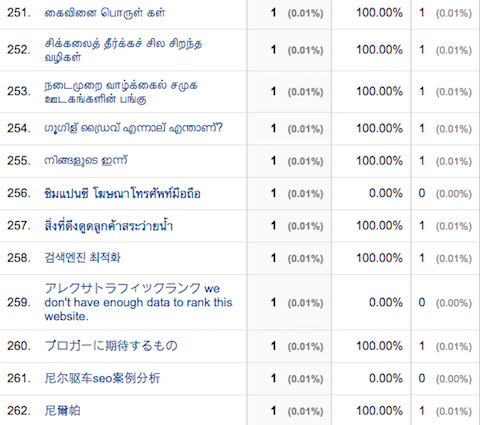
It also started to get blog comments from people speaking different languages, giving them proof that this was working: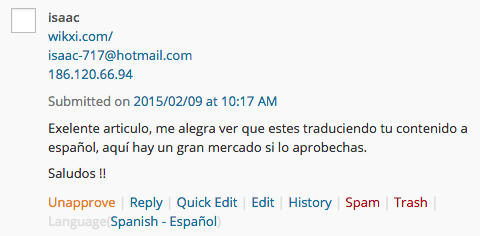
The content was finally available to read for individuals who didn’t read English well or preferred to read in their native language.
Now, this site is translated into dozens of different languages too:
If a new segment or country starts to provide traffic, you must also optimize for that country as well:
4. Setup Hreflang
Simply put, the hreflang attribute is a signal to Google that tells them what language your page is in, allowing search engines to give the right page to the right user.
The code generally tends to look like this:
Google first introduced this set of codes in December of 2011.
It helps out drastically when creating SEO-friendly content for new languages and audiences.
Here’s how it works:
User X searches in language Z, and the tag signifies that User X should land on the page with language Z, compared to the other page with language Y instead.
In short, it directs the user to specific language-based pages if you have multiple pages with similar or duplicated text even.
Have a look at the source code of this site:
We use multiple hreflang tags for places like Brazil, Spain, and more.
Let’s take, for example, you notice that you have tons of traffic from Mexico, so you decide to create a specific Spanish version of your blog posts.
You would want to tag that page using:
hreflang
Now users whom Google suspects to have an IP in Spanish-speaking regions would be directed to this page rather than your English content.
Not only will this help Spanish-speaking users nonetheless, but it shall also boost your SEO strength by reducing bounce rate, increasing time on site, and conversions even.
Doing this can also help you interlink pages with the same language so that a user doesn’t have to read any English on your site.
So, where does this tag go on your site?
The hreflang tag can and really should be placed in the on-page markup, or the HTTP header, or the sitemap even. Make sure only to use one location, though.
If your Spanish site sells to customers in Span, France, and Portugal, you should have hreflang tags referencing the main page and different languages for other languages: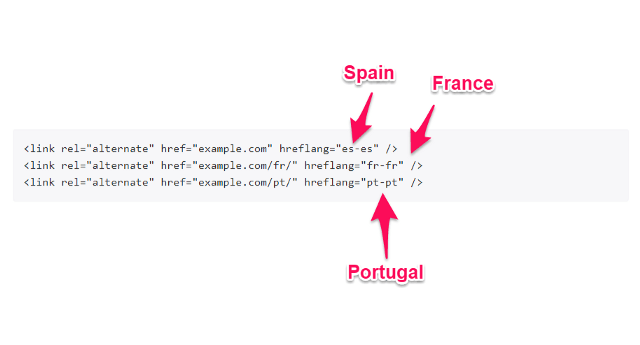
Isn’t this going to take hours upon hours to do?
Not if you are using a tool! Try using the hreflang Tags Generator Tool: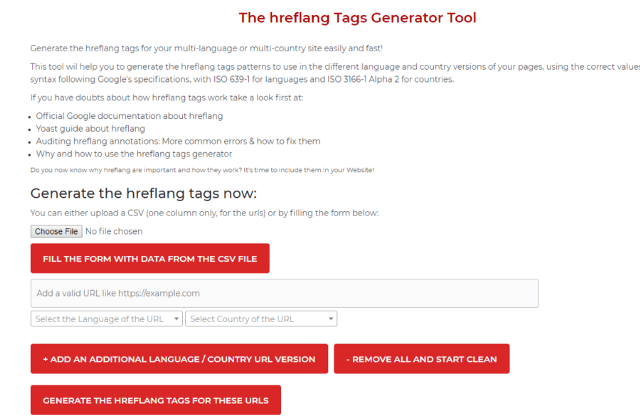
To get started, plug in your URLs, select the original language of that URL and choose the united states of the URL then.
Once you’ve done your standard country, it’s the right time and energy to add more countries from the study you compiled earlier.
Next, click “+ Add Language/Country Url Version.”
Now copy and paste your same URL, selecting a new language and a new country from the drop-down list:
Repeat this process for each country and language you wish to target. You can even upload a spreadsheet using this tool to save you countless hours of manual work.
Lastly, you click “Generate The Hreflang Tags For These URLs”€ to obtain a compiled list to add to your site code:
This will compile a new list of code so that you can add it to your site: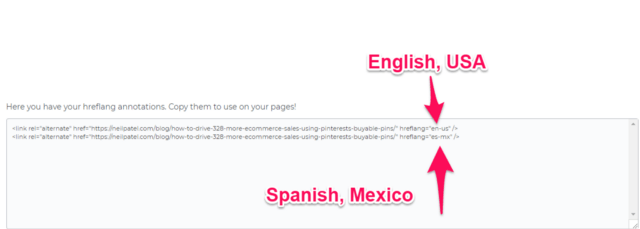
You’ve completed it.
Now that you have translated your content and prepared search engines for hreflang tags, you can complete the last step to expanding your SEO strategy to overseas markets.
5. Redirecting users
The final step in trying to develop your SEO strategy overseas profitably is to remember to redirect users.
When someone comes to your website, you would like to redirect them to the region they are from. This is all due to browser settings.
Just like if you were browsing now, Google could detect what language you’re reading in.
The goal here is to redirect users who might land on your English pages to the proper page. With a little bit of tweaking, it is possible to redirect users automatically.
So we suggest hiring an experienced developer on Upwork to get this done.
Make sure to let them know the following:
Do not redirect search engine bots.
Why? Because a ton of servers is in English-speaking regions, like the United States.
For example, if Google is crawling your German page from an English server, you don’t want to redirect them. It would be best if you learned both your German and English sites.
Tell your developer this, and they’ll understand how to complete the job for you personally precisely.
If you don’t have a developer, turn to Upwork. They are one of my most trusted sources for outsourcing and hiring new workers at a fair cost that you could scale quickly with.
Conclusion
When marketers are looking to acquire more organic traffic or boost their SEO strategy, they execute a few things often.
They might create more blog content to drive inbound visits. Or they could run backlink campaigns to improve their domain rankings and authority of specific posts.

See How My Agency Can Drive Massive Amounts of Traffic to Your Website
SEO – unlock massive amounts of SEO traffic. See real results.
Content Marketing – our team creates epic content that will get shared, get links, and attract traffic.
Paid Media – effective paid strategies with clear ROI.
But both of those are extremely difficult and time-consuming. Plus, often, they’re futile, actually.
But what most don’t know is that there exists a massive untapped market waiting to be used: International SEO.
With everyone producing blog content for the USA in English, it’s no wonder it’s so crowded. But overseas SEO markets are virtually untouched still.
You can do this by running a risk analysis on Analytics and gauging what sort of traffic you are already getting from international locations.
See if you have any traffic from different countries before going all in.
Next, translate your blog content into those languages for countries that are already visiting your site. This will help you increase time on site and produce better experiences for those users.
Make sure to set up hreflang tags for your new content to ensure that you rank high in those languages and don’t get penalized.
Lastly, tell your developer to redirect users based on their regions.
So now we know the 5 Ways to Profitably Expand SEO Strategy Abroad.

